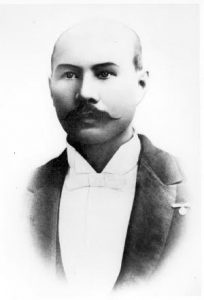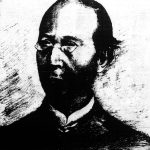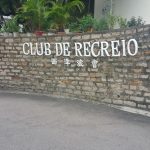(Note: Information for this article was drawn from a longer study that will be published in the future.)
My research often uncovers accounts of 19th century Macanese families that made the transition from Macau to Hong Kong, and a few that had success starting new businesses in the British colony. To do so, they often disregarded a cultural aversion to commerce in Macau.[1]
Like old Macau, the same avoidance of business seems to be afflicting leading Macanese associations in Macau today. Despite repeated requests from Beijing, many have refused to develop projects aligned with China’s “One Belt, One Road” strategy or offer proposals that help to diversity Macau’s economy. Their lack of commitment has led to criticism in the press and indications that the Chinese government is scrutinizing their budgets.[2] More on the effects of these decisions in the conclusion.
The current aversion to business in Macau does not seem to be shared by Macanese in other communities around the world. In Hong Kong, Portugal, the United States, Canada, and Australia a new generation has begun to flourish in a widening global economy.[3] There are also historical examples of Macanese succeeding in business, beginning in Hong Kong in the 1840s.
One involved a linotype operator educated at the Seminary of St. Joseph named Delfino Noronha, who moved to Hong Kong and founded a large printing business in 1844.[4] As Macau was eclipsed as a trading port by Hong Kong after the 1860s, more Macanese began crossing the Pearl River Delta to find work. Among those was Noronah’s protégé, Lisbello Xavier, who migrated in 1880 to found the Hongkong Printing Press.[5] A review of the Press’ history offers a lesson in business development that Macanese associations today might well consider.
The Origins of an Entrepreneur

Lisbello de Jesus Xavier was born in Macau in 1862 in the parish of Sao Lourenco near the Lilau district, where Portuguese immigrants first settled in the late 16th century. Church records indicate that this branch of the Xavier family had lived in Macau since about 1780, while family members suggest their forbearers likely migrated from Goa.
Like Noronha, Lisbello Xavier was educated at the Seminary of St. Joseph, established in 1784 and located close to his home parish. During a period of declining opportunities, the curriculum of St. Joseph’s included training in languages and the mechanical arts, which involved typeset printing. Both Lisbello Xavier and Delfino Noronha may have trained on an antiquated machine obtained in 1826, and apprenticed as print compositors with firms in Macau, albeit several years apart. By the time Xavier arrived in Hong Kong, Noronha & Co. was already established as one of the most successful printing businesses in the colony.

Noronha & Co. was one of the first Macanese owned businesses in Hong Kong, and had grown because of a contract in 1847 to print “The Hongkong Almanack” for the Registry Office. Winning a competition over several British and Scottish printers in 1859, Noronha signed another agreement to print the government’s public notices, including its premier journal, the “Hong Kong Government Gazette”. A Chinese edition was added in 1862. In later years, Noronha purchased the Macanese owned “Celestial Empire Press” in Shanghai, and installed one of his sons as the manager.
Lisbello Xavier worked as a compositor for Noronha & Co. from 1880 through 1887. In 1888, learning that his protégé wanted to open his own press, Noronha granted Xavier a subcontract to print government notices and the gazette on his own. To finance equipment, Lisbello Xavier sold a prized clarinet to purchase his first linotype machine.
Xavier incorporated the new Hongkong Printing Press on June 1, 1888. He was fortunate to take over printing of the colony’s notices at a time when business was growing. Like Noronha, the Xavier owned press became the basis of the company’s expansion. Besides government printing, the press produced tourist guides for port cities where immigrant Macanese settled, including Canton, Shanghai, and Macau. The additional revenue from numerous reprints and expansion into product labels allowed the company to flourish. To keep up with the demand, the business moved in 1905 to a new factory site at No. 3 Wydham Street in central Hong Kong.

Lisbello Xavier’s success led to an invitation to join the prestigious Club Lusitano in 1903, which mirrored the Hong Kong Jockey Club and other “British only” associations. In the same year Lisbello provided funding and was elected the first president of the Club de Recreio in Kowloon. Recreio’s purpose was to encourage informal gatherings through athletic competition by organizing leagues and building recreational facilities for Macanese who moved to the region after it was annexed in 1860. Other investors had already made the transition, including Delfino Noronha, who owned a large farm in Kowloon and set up the first ferry service to Central Hong Kong in the 1870’s.
Lisbello Xavier spent 21 years expanding his business, while buying property in the New Territories north of Kowloon and involving relatives as partners. Upon his death in 1909 Lisbello’s eldest son, Pedro d’Alcantara Xavier, took over the company. Pedro’s efforts led to new revenue from product labels for “Tiger Balm” ointment, “Double Happiness” cigarettes, and printing currency notes for the governments of Macau, China, and Japan in the 1920’s.
Conclusion
Despite current perceptions that the Macanese are “not interested in business”, this historical example suggests that there were few limits to how Macanese commerce could develop, even in a “foreign” environment like colonial Hong Kong.[6] Given the incentives provided by IPIM and local foundations supported by gaming revenue in Macau today, the business environment may be even more conducive to new projects.
So, the question for Macanese associations remains: When will you incorporate business development into your projects? If Macanese culture in Macau is to remain relevant, a means to justify its support from Beijing should become a priority. That is the reality confronting all Macanese inside and outside Macau. The solution may be projects that align with China’s commercial strategies, and are flexible enough to serve both cultural and commercial purposes, especially those involving young Macanese around the world. The floor is now open to proposals.
Next time: A Solution for Cultural and Commercial Macau
____________________________
[1] The root of this problem may be perceptions of class status from the colonial period, which were often at odds with commerce conducted by Luso-Asians in India and Southeast Asia. For historical examples, see C.A. Montalto de Jesus, Historic Macao, Hong Kong, 1902 and 1926, and C.R. Boxer, Fidalgos in the Far East, Oxford: Oxford University Press, 1968.
[2] The latter is based on discussions with Chinese and Macanese officials in late 2016 and early 2017.
[3] See my article: “Profiles of the Macanese Diaspora”, https://www.macstudies.net/profiles-of-the-macanese-diaspora-the-next-generation/
[4] The information concerning Delfino Noronha is taken from Stuart Braga’s book: Making Impressions: A Portuguese Family in Macau and Hong Kong, 1700-1945, IIM, Macau, 2015.
[5] Information on Lisbello de Jesus Xavier is part of a longer study of the Hongkong Printing Press that will be published in the future on FarEastCurrents.com. The data was taken from an unpublished four part manuscript written by Eduardo P. Xavier and Dr. Anita M. Xavier, copies of which were provided to the author for inclusion in this and future articles.
[6] This sentiment is often repeated in conversations among Macanese in and outside Macau, clearly a narrow view given the professional involvement of their children and grandchildren in many international companies.
More Stories
Studies of China’s GBA: U.S. – Chinese Interdependence after the Pandemic
Colonial Journalism in 19th Century Macau and Hong Kong
Women and Cultural Boundaries in Macau